Abstract
Secretin-stimulated insulin release was studied in normal subjects. In response to rapid intravenous injections (pulses) of secretin, insulin levels reached a peak between 2 and 5 min and returned to basal levels with 15 min. In contrast to large glucose pulses, increasing secretin pulses did not elicit sustained or prolonged insulin responses. In addition, insulin responses to a pulse and infusion were essentially identical with that of a pulse alone. Increasing secretin pulses given in 1 day were associated with decreasing insulin responses but not when the same pulses of secretin were given over a 2 day period. When time was the sole variable, insulin responses progressively decreased after identical 15-U secretin pulses given every 30 min, but were unchanged when the interval was 105 min. These observations indicate that secretin in contrast to glucose stimulates insulin release which is uniphasic. They suggest that release occurs only from a stored, readily available pool. This insulin pool appears to be relatively small and can be discharged faster than it refills.
Full text
PDF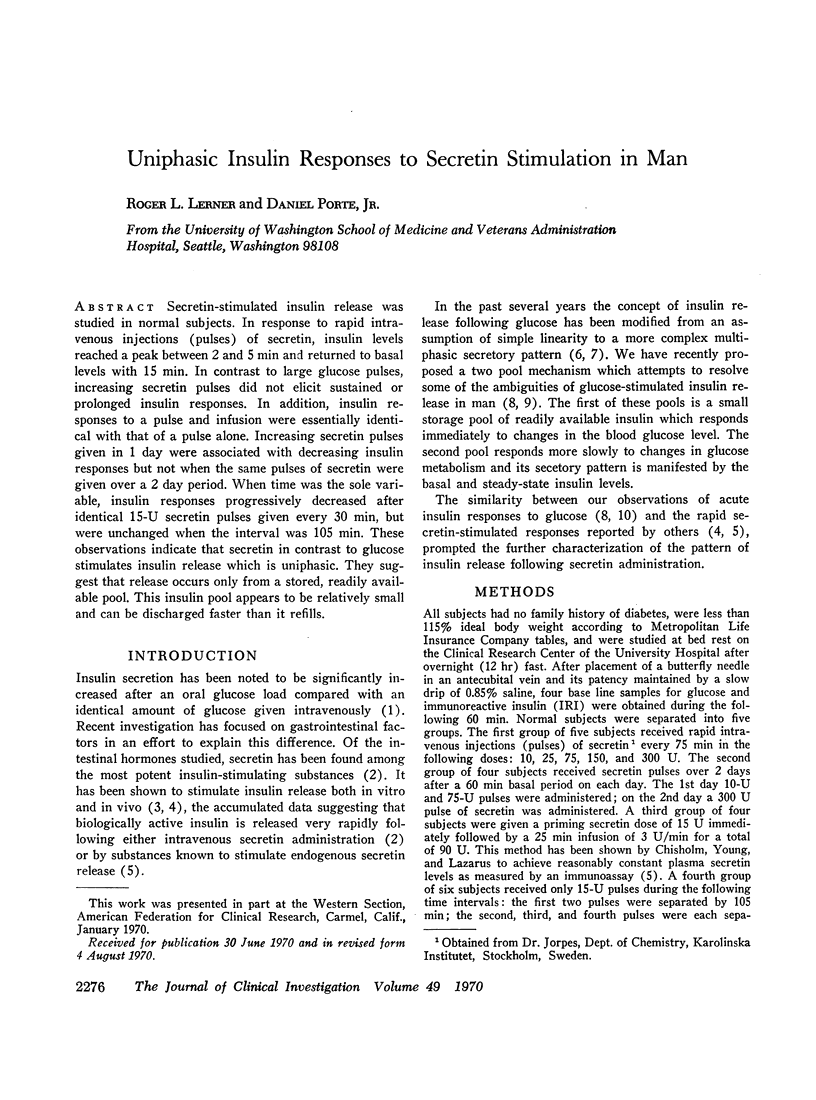
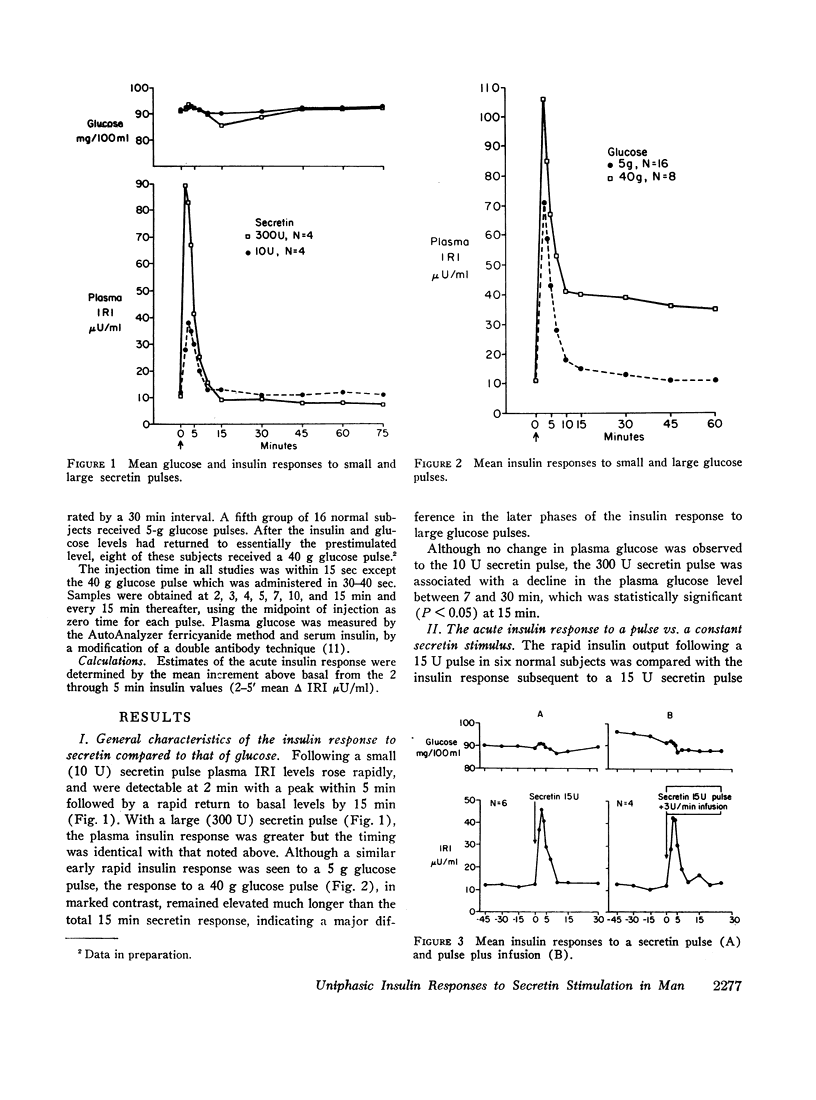
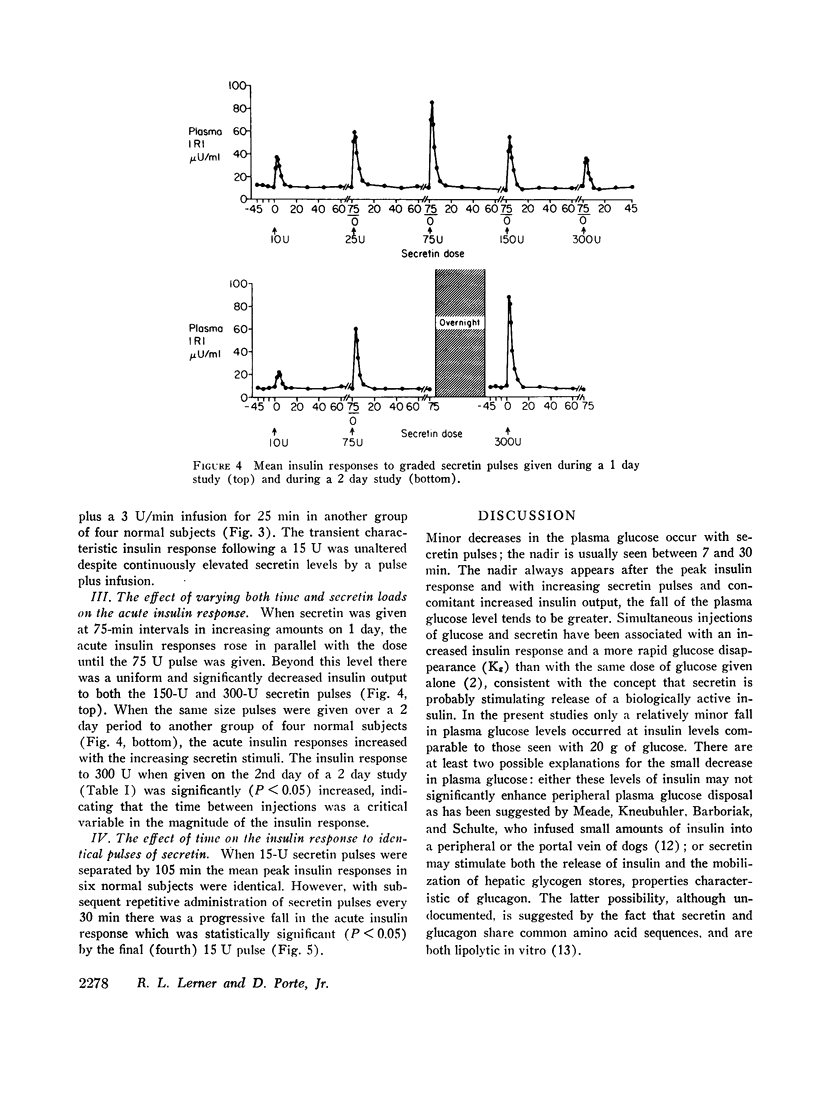
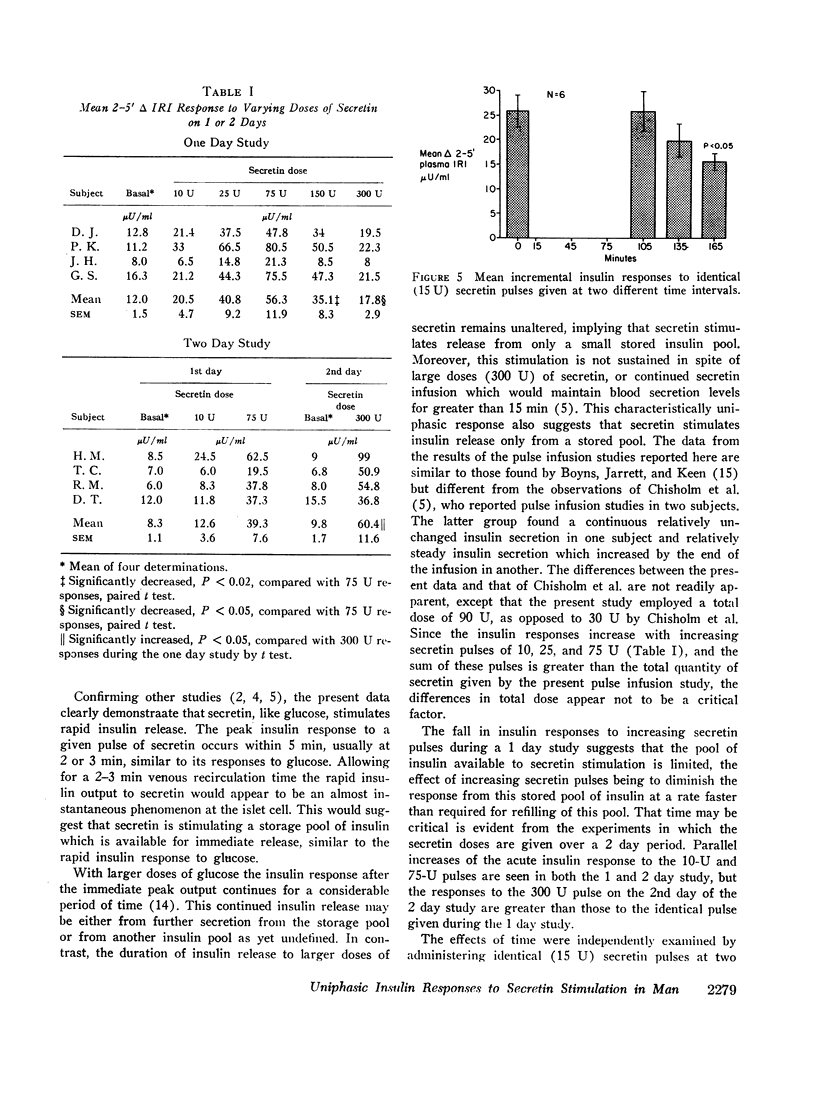
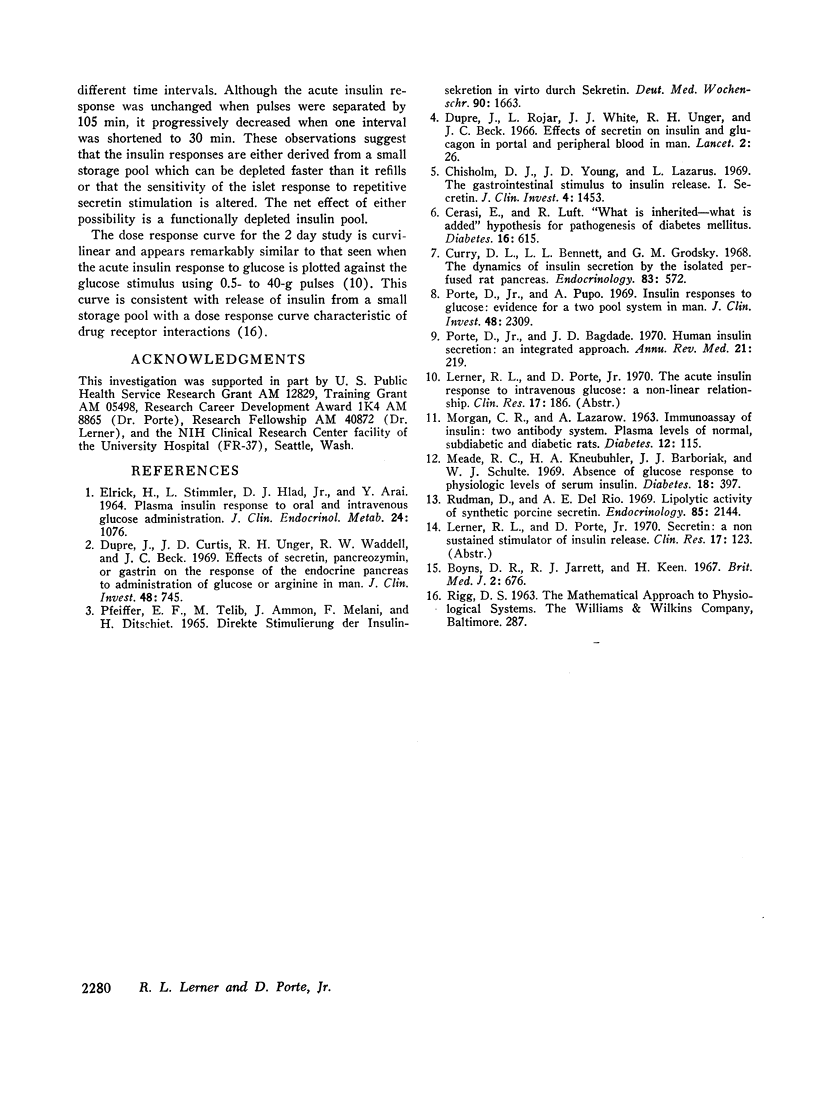
Images in this article
Selected References
These references are in PubMed. This may not be the complete list of references from this article.
- Boyns D. R., Jarrett R. J., Keen H. Intestinal hormones and plasma insulin: an insulinotropic action of secretin. Br Med J. 1967 Jun 10;2(5553):676–678. doi: 10.1136/bmj.2.5553.676. [DOI] [PMC free article] [PubMed] [Google Scholar]
- Chisholm D. J., Young J. D., Lazarus L. The gastrointestinal stimulus to insulin release. I. Secretin. J Clin Invest. 1969 Aug;48(8):1453–1460. doi: 10.1172/JCI106111. [DOI] [PMC free article] [PubMed] [Google Scholar]
- Curry D. L., Bennett L. L., Grodsky G. M. Dynamics of insulin secretion by the perfused rat pancreas. Endocrinology. 1968 Sep;83(3):572–584. doi: 10.1210/endo-83-3-572. [DOI] [PubMed] [Google Scholar]
- Dupre J., Curtis J. D., Unger R. H., Waddell R. W., Beck J. C. Effects of secretin, pancreozymin, or gastrin on the response of the endocrine pancreas to administration of glucose or arginine in man. J Clin Invest. 1969 Apr;48(4):745–757. doi: 10.1172/JCI106032. [DOI] [PMC free article] [PubMed] [Google Scholar]
- Dupré J., Rojas L., White J. J., Unger R. H., Beck J. C. Effects of secretin on insulin and glucagon in portal and peripheral blood in man. Lancet. 1966 Jul 2;2(7453):26–27. doi: 10.1016/s0140-6736(66)91750-8. [DOI] [PubMed] [Google Scholar]
- ELRICK H., STIMMLER L., HLAD C. J., Jr, ARAI Y. PLASMA INSULIN RESPONSE TO ORAL AND INTRAVENOUS GLUCOSE ADMINISTRATION. J Clin Endocrinol Metab. 1964 Oct;24:1076–1082. doi: 10.1210/jcem-24-10-1076. [DOI] [PubMed] [Google Scholar]
- Meade R. C., Kneubuhler H. A., Barboriak J. J., Schulte W. J. Absence of glucose response to physiologic levels of serum insulin. Diabetes. 1969 Jun;18(6):397–401. doi: 10.2337/diab.18.6.397. [DOI] [PubMed] [Google Scholar]
- Pfeiffer E. F., Telib M., Ammon J., Melani F., Ditschuneit H. Direkte Stimulierung der Insulin-Sekretion in vitro durch Sekretin. Dtsch Med Wochenschr. 1965 Sep 17;90(38):1663–1669. doi: 10.1055/s-0028-1113397. [DOI] [PubMed] [Google Scholar]
- Porte D., Jr, Bagdade J. D. Human insulin secretion: as integrated approach. Annu Rev Med. 1970;21:219–240. doi: 10.1146/annurev.me.21.020170.001251. [DOI] [PubMed] [Google Scholar]
- Porte D., Jr, Pupo A. A. Insulin responses to glucose: evidence for a two pool system in man. J Clin Invest. 1969 Dec;48(12):2309–2319. doi: 10.1172/JCI106197. [DOI] [PMC free article] [PubMed] [Google Scholar]



